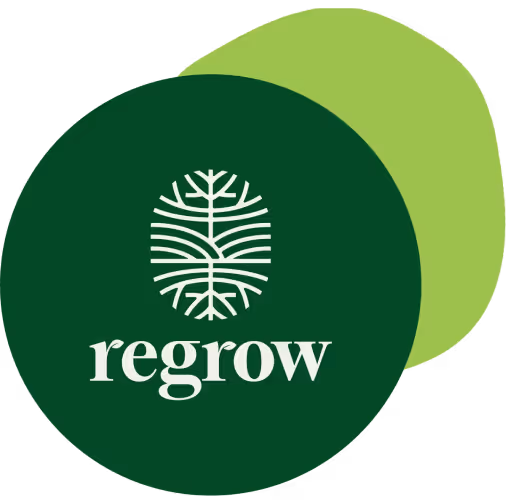Water sustains life. So much so, in fact, that when we explore other planets we use the presence of water as one of the few indicators of life. No water — no life.
That’s why it’s essential that our water is clear, clean and abundant. However, it’s not always clear that water quality and quantity are direct functions of agriculture and soil health. In this article, we’ll discuss how regenerative agriculture can support healthy water use, and what’s already being done about it.
How Regenerative Farming Affects Water
Regenerative agriculture builds soil health — that’s the primary objective of the practice. Regenerative farming methods are heralded specifically because they help soil retain nutrients, withstand natural stresses and avoid erosion.
By these principles, regenerative practices also help us conserve water and build water quality in our ecosystems.
These practices help the soil retain water and nutrients, which can:
- Reduce the amount of water used for farming
- Help the soil retain naturally-occurring nutrients, thereby requiring less fertilizer
- Reduce the amount of harmful water and nutrient runoff from agricultural lands
Reduced Water Use
Healthy soil retains water. This means that growers will need to irrigate their fields less often, and the soil will make better use of the water they do add. Regenerative practices, therefore, can help growers conserve water.
Reducing water use can have a huge impact on our global water availability, especially considering that 70% of the world’s water is used for agriculture each year.
Nutrient Retention
Since healthy soil retains water, it also holds water-soluble nutrients that plants need to thrive. These nutrients help crops grow stronger and more nutritious, and the strength of the soil can also lead to long-term storage of greenhouse gasses from the atmosphere.
Reduced Runoff
Perhaps you’ve heard of oceanic and freshwater dead zones — portions of water bodies that have low oxygen levels and, as a result, can sustain very little (if any) marine life. These dead zones are often partially caused by nutrient and chemical runoff from agricultural lands. If our soils can retain more water, less of that water will run off our land, carrying harmful nutrients into our waterways.
Current Water Projects and Ecosystem Markets
Water quality and availability is a significant driver of life on Earth, and as you can see, it’s significantly impacted by our farming practices. By incentivizing climate-smart farming, we are not only building the strength of our soils but also improving our natural water systems. These incentives can come in the form of water quality credits (similar to carbon credits), as part of our ecosystem markets system.
In June, Regrow participated in Innovation Forum’s The Future of Food US. Conversations during the forum highlighted our need for support in water quality and the role of regenerative agriculture in promoting clean accessible water. Experts from the world’s leading food and beverage brands discussed the use of measurement, reporting and verification systems for regenerative agriculture practices as a means of estimating water quality outcomes. Some even discussed pilot projects related to aquifer replenishment focused around high-risk cities.
Many of our partners have also implemented water quality initiatives.
This includes General Mills’ regenerative agriculture pilot and Kellogg’s water efficiency program. These organizations are working to promote healthier waterways through agriculture, and by working together we can accelerate food system transformation at an industry-wide, global scale.
Learn more about our partnerships with General Mills and Kellogg’s.
.avif)


